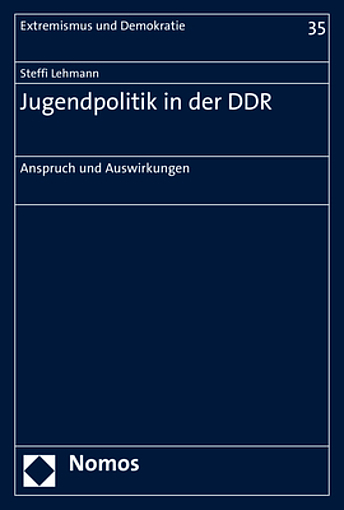englischAs studies to date have shown, the aims and key aspects of the GDR’s youth policy and its practical consequenc-es have not yielded satisfactory results. Steffi Lehmann’s study is the first to contextualise the SED’s ideological demands as well as the real consequences of its youth policy and treatment of – supposedly – oppositional young people between 1945 and 1989/90. In her study, which outlines four time periods, she examines the aims of the GDR’s official youth policy, its socialist doctrine of education and the function of the FDJ on the one hand, and the real conditions in the country, i.e. attitudes towards the FDJ, general conduct in the private sphere and recreational activities, and the pressure to conform and nonconformism on the other. Her conclusion is that most adolescents internalised the speech and behaviour prescribed by the SED and adopted them in public, e.g. at school or at work, but not in their private lives and leisure time.
Bislang sind die Ziele bzw. die Schwerpunkte der Jugendpolitik in der DDR und deren praktische Auswirkungen unzureichend untersucht. Steffi Lehmann setzt in ihrer Studie die ideologischen Ansprüche der SED und die realen Auswirkungen der Jugendpolitik sowie den Umgang der Staatsmacht mit – vermeintlich – oppositionellen Jugendlichen von 1949 bis 1989/90 erstmals in einen Kontext. Sie untersucht, aufgegliedert in vier zeitliche Phasen, einerseits den Anspruch der offiziellen Jugendpolitik mit Blick auf Ziele, sozialistische Erziehungsdoktrin und Funktionen der FDJ, andererseits die tatsächlichen Verhältnisse anhand der Einstellung zur FDJ, des privaten Raums und der Freizeitgestaltung, Konformitätszwang und Anpassung sowie Nonkonformismus. Ihr Ergebnis: Die meisten Jugendlichen verinnerlichten, die von der SED diktierten Phrasen im öffentlichen Raum, etwa in der Schule oder im Betrieb, wiederzugeben; im Privatleben und in der Freizeit jedoch stieß der erzieherische Einfluss an seine Grenzen.


